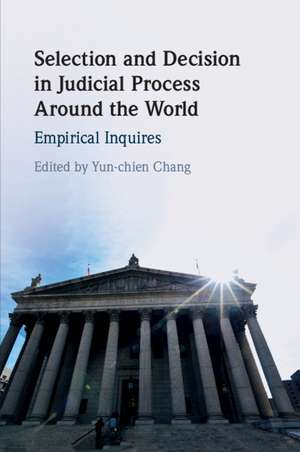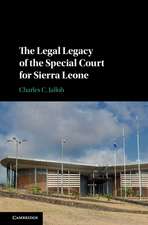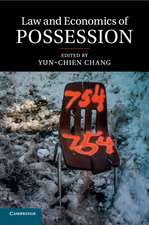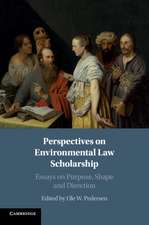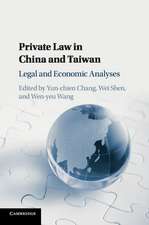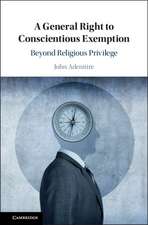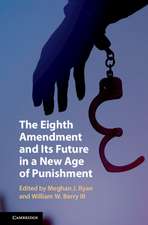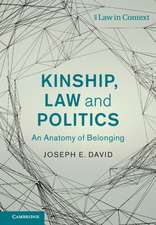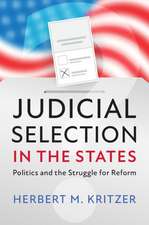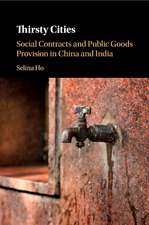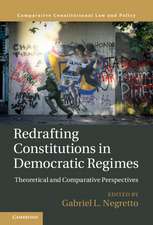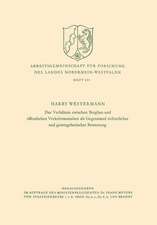Selection and Decision in Judicial Process around the World: Empirical Inquires
Editat de Yun-chien Changen Limba Engleză Paperback – 28 sep 2022
| Toate formatele și edițiile | Preț | Express |
|---|---|---|
| Paperback (1) | 243.64 lei 6-8 săpt. | |
| Cambridge University Press – 28 sep 2022 | 243.64 lei 6-8 săpt. | |
| Hardback (1) | 614.09 lei 38-44 zile | |
| Cambridge University Press – 18 dec 2019 | 614.09 lei 38-44 zile |
Preț: 243.64 lei
Nou
Puncte Express: 365
Preț estimativ în valută:
46.62€ • 48.81$ • 38.58£
46.62€ • 48.81$ • 38.58£
Carte tipărită la comandă
Livrare economică 05-19 aprilie
Preluare comenzi: 021 569.72.76
Specificații
ISBN-13: 9781009305785
ISBN-10: 1009305786
Pagini: 312
Ilustrații: 28 b/w illus. 43 tables
Dimensiuni: 153 x 228 x 19 mm
Greutate: 0.42 kg
Editura: Cambridge University Press
Colecția Cambridge University Press
Locul publicării:Cambridge, United Kingdom
ISBN-10: 1009305786
Pagini: 312
Ilustrații: 28 b/w illus. 43 tables
Dimensiuni: 153 x 228 x 19 mm
Greutate: 0.42 kg
Editura: Cambridge University Press
Colecția Cambridge University Press
Locul publicării:Cambridge, United Kingdom
Cuprins
Introduction Yun-chien Chang; 1. Do patent law suits target invalid patents? Michael Frakes and Melissa Wassermann; 2. Platform procedure: using technology to facilitate (efficient) civil settlement J. J. Prescott and Alexander Sanchez; 3. Speedy adjudication in hard cases and low settlement rates in easy cases: an empirical analysis of Taiwan courts with comparison to US federal courts Yun-chien Chang and William Hubbard; 4. How lower courts respond to a change in a legal rule Anthony Niblett; 5. Career judge system and court decision biases: preliminary evidence from Japan Hatsuru Morita and Manabu Matsunaka; 6. Judges avoid ex post but not ex ante inefficiency: theory and empirical evidence from Taiwan Yun-chien Chang; 7. When winning is not enough: prevailing-party civil appeals in state courts Michael Heise; 8. The evolution of case influence in modern consumer standard form contracts Florencia Marotta-Wurgler; 9. Judging insurance antidiscrimination law Ronen Avraham, Alma Cohen and Ity Shurtz, 10. Are judges harsher with repeat offenders? Evidence from the European Court of Human Rights Eric Langlais, Alessandro Melcarne and Giovanni Ramello; 11. Does efficiency trump legality? The case of the German Constitutional Court Christoph Engel.
Descriere
Leading empirical legal scholars from around the world explore whether and under what conditions the judicial process is efficient.
